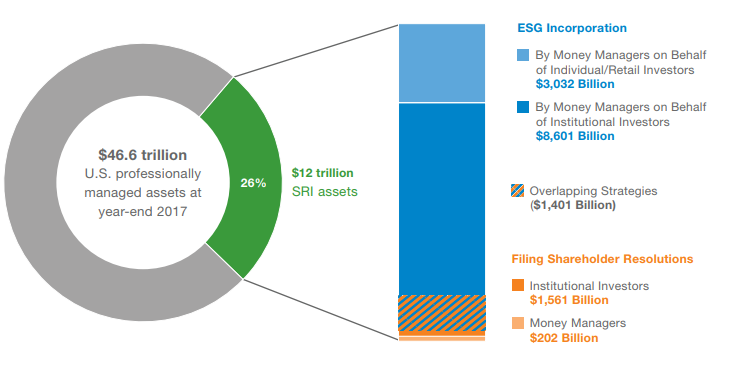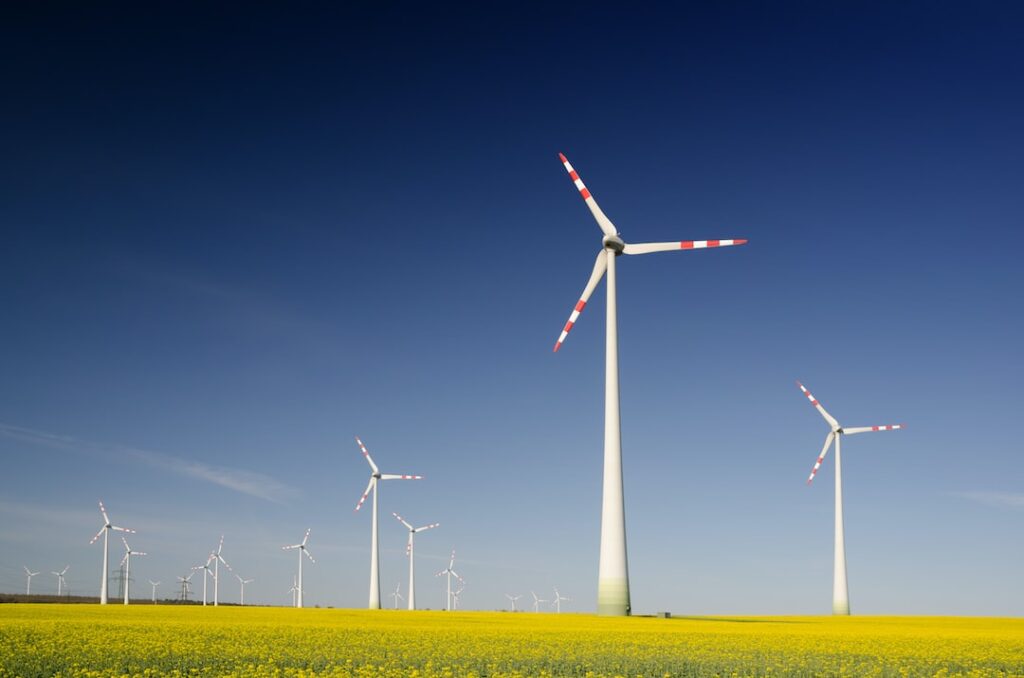The world is changing. The way we produce and consume energy is evolving, and it’s important that our investments reflect this change. ESG clean energy is a key part of the puzzle.
There are many benefits to investing in ESG clean energy. But first, let us define what is ESG clean energy.
Table of Contents
What is ESG clean energy?
As more and more people look for ways to reduce their reliance on fossil fuels and move towards renewable energy sources, the term ESG clean energy is becoming increasingly common.
But what does it actually mean?
ESG stands for environment, social responsibility, and governance. In the context of clean energy, it refers to energy projects that have positive impacts on all three of these areas.
For example, a solar power plant would be considered an ESG clean energy project because it produces zero emissions, creates jobs, and helps to diversify the energy mix.
Similarly, a wind farm would also be considered ESG clean energy as it reduces our dependence on fossil fuels, creates jobs in the construction and maintenance industries, and provides a source of clean, renewable energy.
Investors are increasingly interested in ESG clean energy because it offers both financial and social returns.
In addition, as more countries commit to reducing their emissions in line with the Paris Agreement, there is a growing market for clean energy projects that can help them meet their targets.
The Benefits of ESG Clean Energy
There are plenty of benefits that come with using clean energy, but here are just a few.
1. It’s Good for the Environment
This one is pretty obvious – since clean energy doesn’t produce pollution, it’s much better for the environment than traditional forms of energy. And that’s important because a healthy environment is essential for our health and well-being.
2. It’s Renewable
Unlike fossil fuels, which are finite and will eventually run out, clean energy comes from sources that are renewable, like the sun, wind, and water. That means we can count on it to be around for a long, long time.
3. It’s Creating Jobs
The clean energy industry is one of the fastest-growing industries in the world, and it’s creating jobs at a rapid pace. In fact, it’s estimated that there are already more than 3 million people employed in the clean energy sector.
4. It Saves Money
Using clean energy can save you money in a few different ways. For one, it can help you save on your energy bills.
And second, it can help reduce the need for costly repairs and replacements since it doesn’t produce the pollution that can damage infrastructure.
5. It’s Improving Lives
Access to clean energy is improving lives around the world. In rural areas, for example, it can provide much-needed electricity for things like lighting, refrigeration, and communication.
And in developed countries, it’s helping to reduce air pollution and improve public health.
What is Renewable Energy?
We all know that renewable energy is important to help save our planet.
But what exactly is renewable energy, and how does it work?
Renewable energy is energy that comes from natural sources that can be replenished. This includes solar, wind, water, and geothermal.
Non-renewable energy sources, on the other hand, come from sources that will eventually run out, such as fossil fuels.

(Source)
How does renewable energy work?
Solar energy: Solar energy is captured by solar panels, which convert the sun’s rays into electricity.
Wind energy: Wind energy is captured by wind turbines, which turn the wind’s kinetic energy into electricity.
Water energy: Hydroelectricity can be harnessed from hydroelectric dams, tidal energy, and wave energy.
Geothermal energy: Geothermal energy is heat that’s generated by the Earth’s hot interior. This can be harnessed to generate electricity or to heat and cool buildings.
Investing in ESG Clean Energy
There’s no denying that clean energy is good for the environment.
But did you know that it can also be a smart investment?
That’s because more and more companies are looking to invest in ESG clean energy projects. And as demand for these types of investments grows, so does the potential for profit.
Investing in clean energy is not only good for the planet, but it can also be good for your bottom line.
Companies that are seen as leaders in clean energy are often rewarded with lower costs of capital, higher valuations, and a competitive edge in the marketplace.
The Future of ESG Clean Energy
ESG clean energy is a rapidly growing industry with a bright future.
There are many benefits to using ESG clean energy.
For one, it is a more sustainable way to power our homes and businesses.
It also creates jobs, helps to improve air quality, and can be used to help offset carbon emissions.
Despite these benefits, there are still some challenges that need to be addressed in order for ESG clean energy to truly take off.
For example, the cost of initial investment can be a barrier for some people.
Additionally, the infrastructure for this type of energy is still being developed in many areas.
Despite these challenges, the future of ESG clean energy is looking very bright.
More and more companies are beginning to invest in this type of energy, and the cost of investment is slowly coming down. Additionally, the infrastructure is continuing to improve.
In the coming years, we are likely to see even more growth in the ESG clean energy industry.
FAQs About ESG Clean Energy
What is ESG in renewable energy?
The past few years have seen much ado about ESG — shorthand for environmental, social, and governance — a trio of non-financial factors that have become priorities for investors, regulators, and even consumers.
What is a clean energy initiative?
The Clean Energy Manufacturing Initiative (CEMI) is a commitment by the U.S. Department of Energy to enhance manufacturing competitiveness in the United States while advancing the nation’s energy goals and boosting the economy.
Conclusion
There are many benefits to investing in ESG clean energy, but perhaps the most important one is that it’s good for our planet.
This type of energy production is more sustainable and environmentally friendly than traditional methods, and it’s only going to become more popular in the years to come.
If you’re looking for a way to invest in the future of our planet, ESG clean energy is a great option.
{“@context”:”https:\/\/schema.org”,”@type”:”FAQPage”,”mainEntity”:[{“@type”:”Question”,”name”:”What is ESG in renewable energy?”,”acceptedAnswer”:{“@type”:”Answer”,”text”:”
The past few years have seen much ado about ESG \u2014 shorthand for environmental, social, and governance \u2014 a trio of non-financial factors that have become priorities for investors, regulators, and even consumers. “}},{“@type”:”Question”,”name”:”What is a clean energy initiative?”,”acceptedAnswer”:{“@type”:”Answer”,”text”:”
The Clean Energy Manufacturing Initiative (CEMI) is a commitment by the U.S. Department of Energy to enhance manufacturing competitiveness in the United States while advancing the nation’s energy goals and boosting the economy. “}}]}





